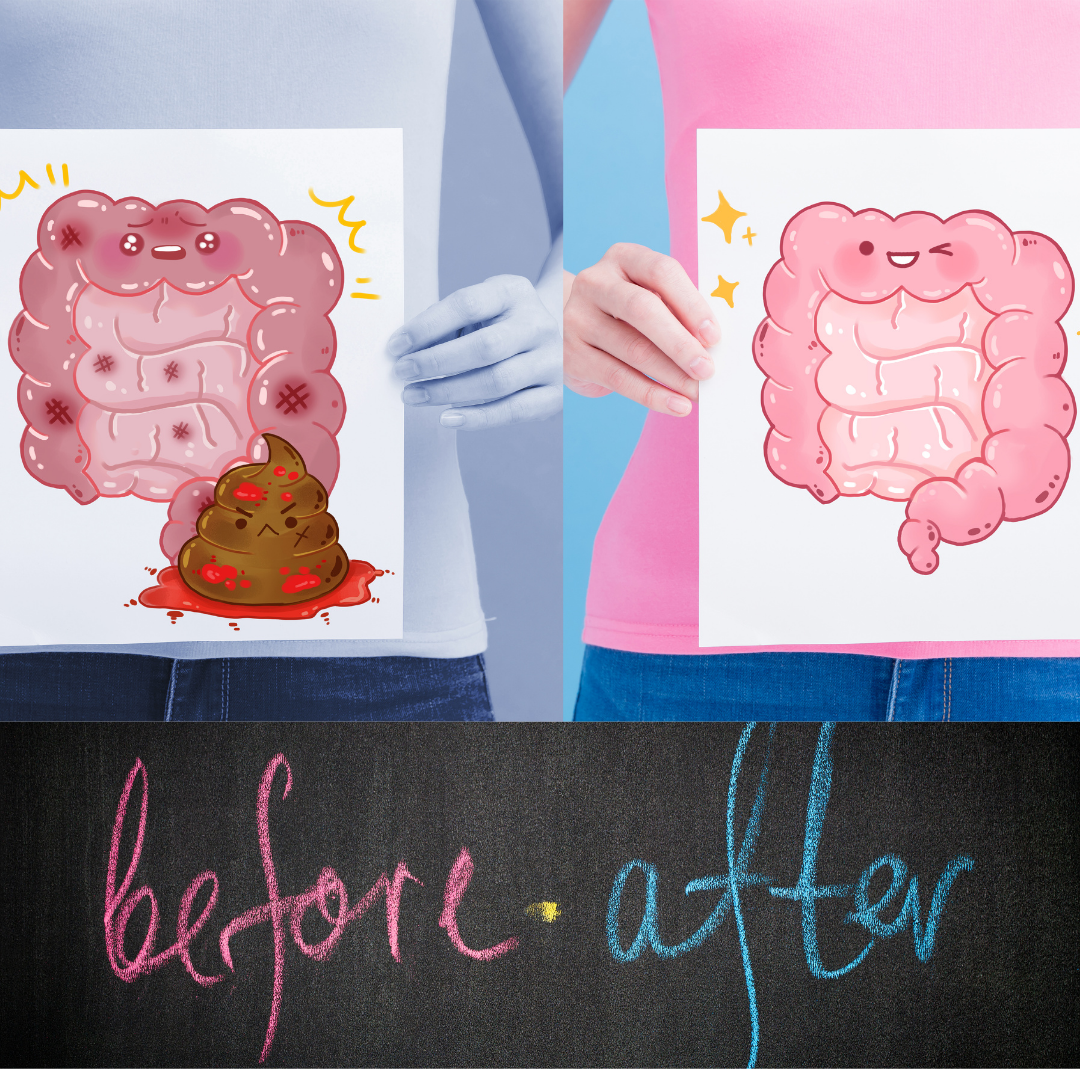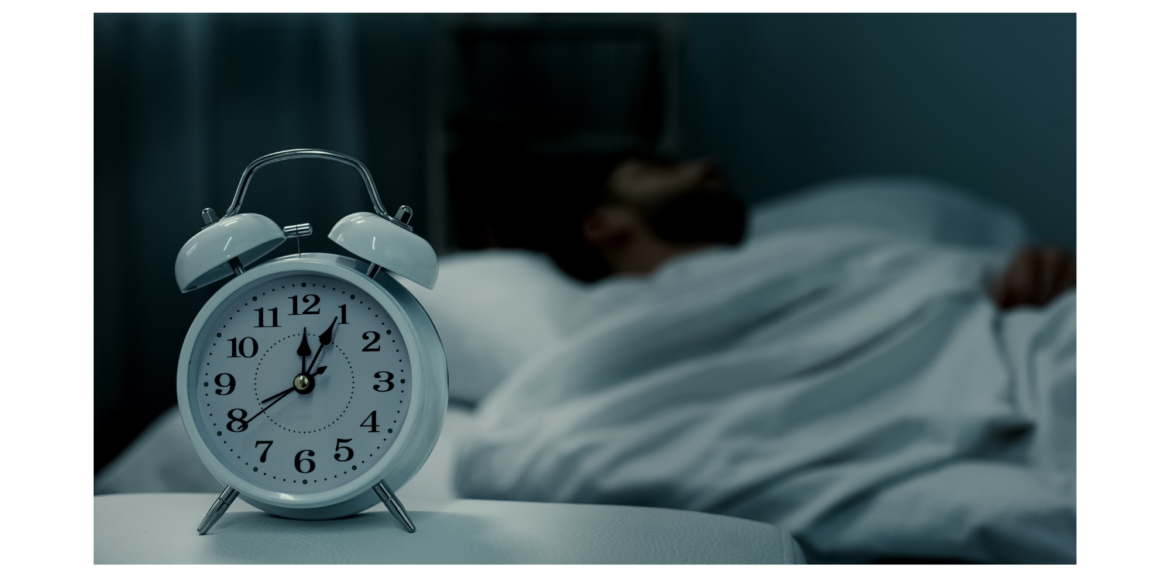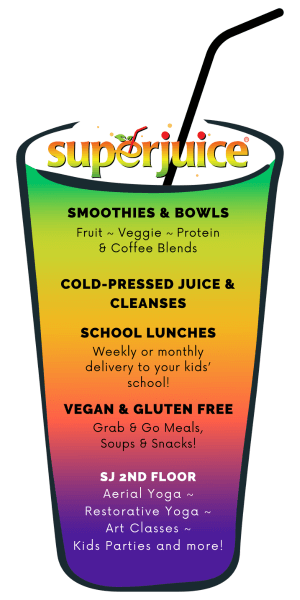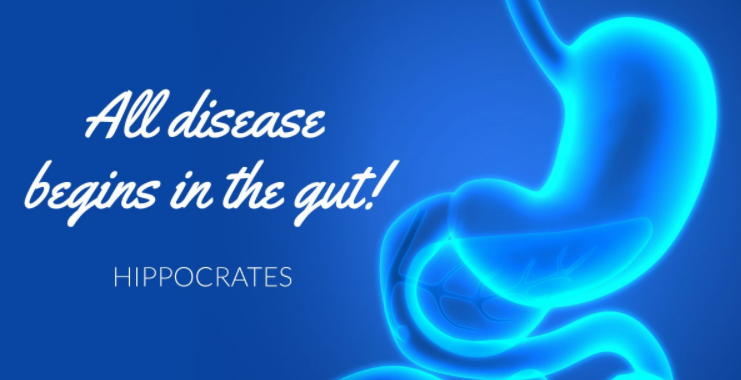 Join April's Webinar & Challenge!
Join April's Webinar & Challenge!Make sure to complete the (3) items below 24 hours in advance of our session together. If you'd prefer, please feel free to cut & paste to an email and send completed.
- Sign the waiver
- Fill out the Client Intake form
- Complete payment 24 hours in advance of our session via the following are payment options:
~Zelle (201-519-4851)
~Venmo
~Paypal
However you should take caution in certain poses if:
If you have trouble relaxing or the idea of ‘sitting still’ for long periods of time makes you anxious, then these are all signs that you SHOULD do more restorative yoga, not the opposite!
If something feels off - adjust it until it feels good. This might mean using more blocks, bolsters or blankets than the person next to you, but in the end the purpose of yoga is not to be the same as everyone else. It’s to become comfortable and aware of YOUR body, and to provide smart, informed support for you to drop inwards and find stillness of the mind.
Many physical therapists have started including and recommending restorative yoga as part of treatment plans for patients, and the benefits (though endless) are still being explored.
Top 5 Nutrition Hacks for Better Sleep
We will be exploring the relationship between sleep and nutrition by discussing specific nutrients, overall eating patterns, timing of eating, and simple action steps to improve your sleeping habits. Let’s go!
About a third of the U.S. adults sleep less than the recommended amount, which is at least 7 hours per night according to the Centers for Disease Control and Prevention (CDC). [i] In fact, people who sleep less than this usually consume less amounts of certain critical nutrients.[ii] Sleep is as important to immunity, energy, metabolism & overall health as healthy eating and being physically active.
Vitamin D
Let’s start by discussing vitamin D, the sun’s nutrient. Lack of vitamin D is associated with an increased risk of sleep disorders, short sleep duration, and poor sleep quality and less overall sleep each night.[i] Research has found that lack of D negatively impacts sleep in a variety of populations including Korean women, African Americans, and men over the age of 65.
Does taking a vitamin D supplement produce the opposite effect, leading to longer and better quality sleep? Maybe not immediately. For example, one study showed improved sleep quality after 3 months of supplementation.[ii] So, stick with it and take your supplemental D every day.
Vitamin C
Vitamin C is a crucial antioxidant that protects cells from damage and aids in the healing of wounds. It comes from citrus, broccoli, bell peppers, cauliflower, cantaloupe, and kiwi.[iii] People who sleep the recommended amount (7-9 hours a night), have optimal anti-inflammation and lower oxidative stress profiles, due to vitamin C and other antioxidant levels in their blood.
People with short (5 to 6 hours) and very short (less than 4 hours) sleep durations had lower vitamin C, vitamin D, and carotenoid levels in the blood, putting them at risk for catching colds, flu and other illnesses. In adult women of all ages (19 to 99), short sleep duration was found to be associated with low vitamin C intake.[iv] Perhaps not eating enough Vitamin C rich foods leads to difficulty staying asleep.
Magnesium
Magnesium comes from whole grains, dark, leafy greens, low fat milk and yogurt, dark chocolate and nuts. It’s critical for energy production, muscle and nerve function, blood sugar and blood pressure regulation.[v]
Magnesium is related to healthy sleep because it relaxes muscles and activates deep sleep.[vi] When your sleep clock is imbalanced, our body releases and gets rid of too much magnesium. Insomnia, waking up frequently in the middle of the night, the inability to fall back asleep when you wake up too early, restlessness, tight muscles, and an inability to relax the body and mind are all symptoms of a sleep-related magnesium deficiency.[vii]
Taking a magnesium supplement can improve insomnia, sleep duration and quality, and reduce the amount of time it takes to fall asleep. For women, consuming magnesium from food provides benefits such as helping to stop falling asleep during the day.[viii] If you have questions about magnesium supplements or would like recommendations to access high quality products at a discount, reach out to me.
Overall Eating Pattern
Now, that we have learned about specific nutrients, let’s look at how our overall eating patterns influence sleep. In a study that examined overall dietary intake, researchers compared intakes of food groups, protein, fat, carbohydrates, vitamins, and minerals between short, normal, and long sleep duration groups. Researchers found that the long sleep duration group consumed less protein, meat, and processed meat than the normal sleep duration group. Saturated fat intake was higher in the short sleep duration group compared to the long sleep duration group.
Compared to study participants with low sleep quality, high sleep quality was found in participants who consumed more carbohydrates, fiber, beta-carotene, vitamin E, thiamine, vitamin B6, total folate, vitamin C, calcium, magnesium, potassium, and iron as well as fruit.[ix]
To summarize, for better sleep, eat more fruits, veggies, plant based proteins and whole grains, and eat less processed meats and red meat.
Timing of Eating and Sleep
Finally, we need to explore how meal and snack timing is related to sleep. Two nightly eating habits: eating dinner immediately before bed and eating snacks after dinner, are shown to increase a person’s risk for obesity. This association was found to be more significant for women than men (ugh, of course!!).
There are multiple reasons why: Late-night eating could lead to circadian rhythm imbalance, slower metabolism, increased feelings of cravings and hunger, and weight gain. Energy use and metabolism is naturally lower at night than during the day, so when you snack at night.[x]
Action Steps to Increase Healthy Sleeping Habits[xi]
Now that you know how nutrition and sleep are connected, you can act to sleep better!
- Follow a routine by going to bed and waking up at the same time every day.
- Keep the same schedule throughout the week. Yes, even on the weekends. Try to keep limit the time difference to 1 hour at most. Staying up late and sleeping in late can create an imbalance in your circadian rhythm AKA your body clock’s sleep-wake rhythm.
- Take an hour of quiet time prior to bedtime by avoiding strenuous exercise and screens. The light may signal the brain that it’s time to be awake. Try reading a book before bed.
- Avoid large meals and alcohol at least 2 hours before bedtime.
- Avoid stimulants such as nicotine and caffeine. The effects that caffeine has on the body can last up to 8 hours, which can mess with sleep if you consume coffee in the afternoon!
- Spend time outside to get vitamin D from the sun and be physically active.
- Keep your bedroom quiet, cool, and dark.
- Take a hot bath or use relaxation techniques like meditation apps before bed.
- Consider taking your magnesium supplement in the evening. Take Vitamin D during the daytime.
- Eat plenty of fruits and vegetables, rich in Vitamin C.
- Talk to your doctor if sleep problems arise! Many people do not mention sleep problems to their doctor, and some doctors do not even ask, so make sure to be proactive about it.[xii]
[i] https://www.mdpi.com/2072-6643/10/10/1395/htm
[ii] https://www.sciencedirect.com/science/article/abs/pii/S1389945718306014
[iii] https://ods.od.nih.gov/factsheets/VitaminC-Consumer/
[iv] https://res.mdpi.com/nutrients/nutrients-12-03908/article_deploy/nutrients-12-03908-v2.pdf
[v] https://ods.od.nih.gov/factsheets/Magnesium-HealthProfessional/
[vi] https://www.ncbi.nlm.nih.gov/pmc/articles/PMC6212970/
[vii] https://www.naturimedica.com/top-2-sleep-promoting-nutrients-magnesium-and-calcium/
[viii] https://www.ncbi.nlm.nih.gov/pmc/articles/PMC6212970/
[ix] https://doi-org.umasslowell.idm.oclc.org/10.1007/s41105-019-00244-x
[x] https://www.ncbi.nlm.nih.gov/pmc/articles/PMC6288903
[xi] https://www.nhlbi.nih.gov/health-topics/sleep-deprivation-and-deficiency
[xii] http://healthysleep.med.harvard.edu/healthy/matters/consequences/sleep-and-disease-risk
About Stacy Kennedy


It's officially Spring. So, it's officially time for "Spring Cleaning"! Time to get rid of the old and make room for the new. We typically rid clothing from last season, boxes of “stuff” accumulating in the garage, old birthday cards that are attracting dust, an obsolete technology that is no longer being used.
The same concept can be used for your health because there are toxins building up in your body and compromising many areas of your life. The body has natural healing abilities and numerous mechanisms working hard to help you detoxify and rid the body of harmful substances. However, over time, these systems can become overwhelmed and sluggish.
After the year we've all had let's take a look at five areas of self-care to clean-up right now to help you manage stress, stay healthy during challenging times, and start fresh this Spring.
Physical Self Care:
There’s a strong connection between your body and your mind. This means that in order to reduce stress and boost your mental health, you need to take care of your body too. This means eating a nutrient-dense diet and getting adequate movement, amongst other things. Let’s dig a little deeper.
Are you Breathing: There is one sure-fire way to stop stress in its tracks, breathing! We tend to breathe shallowly throughout the day, and stress can naturally make that breathing quicker and even more shallow. However, when we take a moment to breathe more deeply, fully utilizing our lung capacity, our entire physiology changes. When you breathe deeply, your brain responds by sending the body a message to calm down and relax. Let’s review a simple breath anyone can master to instantly reduce stress.
Belly Breathing:
Diaphragmatic breathing, or belly breathing, can lower your stress levels, reduce your blood pressure, and regulate other important bodily processes. Here’s the basic procedure for diaphragmatic breathing: First, sit or lie in a comfortable position with your shoulders relaxed. Place one hand on your chest and the other on your stomach. Inhale through your nose for about two-four seconds. You should experience the air moving through your nostrils into your abdomen, making your stomach expand. During this type of breathing, make sure your stomach is moving outward while your chest remains relatively still. Purse your lips, as if you’re about to blow out a candle, and press gently on your stomach as you exhale slowly for about two-four seconds. Repeat these steps several times for the best results.
Eat to Reduce Stress:
When feeling stressed, it's not uncommon to turn to food. Unfortunately, seeking comfort from food can cause negative feelings in the long run. Relief from overeating or overindulging in rich treats will be short-lived, potentially leading to requiring increasingly more to be satisfied. Instead of stress eating, you can eat to reduce stress. Did you know leafy greens contain folate, a vitamin that helps produce the feel-good brain chemicals serotonin and dopamine? Asparagus, broccoli, citrus fruit, Brussels sprouts, and garbanzo beans also contain folate. Salmon, flax, and chia are seeds containing omega-3 fats, which have been shown to combat the stress hormone cortisol. Blueberries contain antioxidants and help produce the stress-fighting chemical dopamine. Add blueberries to your morning oatmeal, which is great for a serotonin boost.
Prioritize Exercise:
It's no secret that we all should be active daily. From maintaining mobility and reducing injury to improving mental health, there are countless benefits of physical activity. The physical effects of stress can manifest in a number of different ways, such as headaches, insomnia, anxiety, weight gain, muscle aches and pains, crankiness, and difficulty focusing. While removing all stress from our lives isn't possible, managing stress can help you avoid the negative symptoms. One of the best forms of stress management is exercise. Doing something physical helps get your mind and body out of the fight or flight stress response, so your body feels better. Virtually any form of exercise or movement can increase your fitness level while decreasing your stress. The most important thing is to pick an activity that you enjoy!
For a mind-body exercise, join me for virtual Yoga! You'll have free access to my 4 webinars....Yoga 101, Yoga for Aging Gracefully, Yoga for Athletes & Yoga for Pregnancy and even get to try a class right away.
For structured activity, try cardio, interval training, or strengthening exercises. Unstructured activities like yard work, washing the car, gardening, and organizing or cleaning your home are also great ways to get moving
Get Better Sleep:
Sleep is a crucial aspect of stress management and physical self-care. Adults need anywhere from 7-9 hours each night. Stress can be the cause of troubled sleep. However, the lack of sleep often leads to increased stress levels. To ensure a good night's rest, try creating a bedtime routine to help signal your body, it's time to wind down. Try to go to sleep and wake at the same time each day, even on weekends. Some relaxing activities you may want to try: Stretching Reading Meditating Taking a hot bath Drinking a cup of warm tea Try to avoid using electronics 30 minutes before sleep and resist the urge to scroll through social media or check work emails. Lastly, avoid vigorous activity, large meals, and caffeine close to bedtime. If you're sleep is really out of wack, you may need my 21 day sleep challenge, now.Social Health:
Social health refers to your relationships and the connections you have with the people in your life. Out of necessity, we’ve evolved into social beings. Cooperation with one another enhanced our ability to survive under harsh environmental circumstances. Deep connections to others is a vital aspect of well-being. The best way to cultivate and maintain close relationships is to put time and energy into building your relationships with others. We all have different social needs, meaning this isn’t a set amount of time we require social interaction to benefit. Unfortunately, it's easy to neglect your relationships when life gets busy, and before you know it, stress and loneliness can creep in.
Stay Connected: The good news is no matter where in the world your loved ones are located, remaining connected is easier than ever before. Here are some ways to cultivate connections with others right from your home. Text messaging. Sending a quick ‘Hi I’m thinking of you’ is a quick and easy way to share a moment with a loved one. Video chat. There are countless platforms available that allow you to get in some face-time without leaving your home. WeChat, Whatsapp, and Facebook Messenger are great apps for some free face to face conversations. Group chats. Get together with the whole family virtually with video conferencing. Skype, Zoom, and Google Meet are tools for multi-user interactions. Write a letter. This old-fashioned method of communication can be a fun way to interact. Ask the sender to write back! Share an experience. Pick a book, TV show, or activity you and a loved one both enjoy and set a date to discuss your experiences.
Communication: Communication is a key aspect of staying connected. When we’re feeling stressed, anger and frustration can take over quickly. This can have a negative effect on your communication skills. Sharing your feelings of stress with others can help relieve stress. Listening to others discuss their stress can also help you feel less alone. Allowing yourself to open up and be vulnerable to loved ones is a restorative form of self-care. Here are some tips to help: - Value yourself and your options. - Know your needs and wants. - Express negative thoughts in a positive way. - Receive feedback positively. - Listen when others are speaking.Mental Self Care:
Our thoughts and the way we think about ourselves greatly influence your psychological well-being. Mental self-care involves doing things that help you stay mentally healthy. Practicing self-compassion and acceptance, for example, helps you maintain a healthier inner dialogue. There are many techniques you can use to reduce stress while practicing mental self-care.
Shifting Your Perspective:
One thing that can significantly impact your stress level is your attitude. Pessimists, perfectionists, and those with 'type A' personalities, for example, may have a tendency to self-sabotage with negative thought and behavior patterns. Try taking a more positive outlook. If you look hard enough, there is always some good to be found in any situation. The hard-to-face moments in life often provide teachable moments. It’s up to you to figure out what lesson is to be learned. Rather than focusing on the negative things happening around you, search for the positives.
Imagine Your Stress Away:
Another useful technique for banishing stress involves imagining that your stress is gone! Affirmations, guided imagery, and visualizations are great for helping you manage your stress. Here are some tips for incorporating affirmations into your life. Keep them positive. Repeat your affirmations frequently. Post them around your home and workspace for visual reminders. Some affirmations you can try: I deserve a peaceful and loving life. I am centered and quiet. Calmness washes over me with every deep breath I take. My thoughts are calming down. Challenges bring opportunities. Here’s a short guided meditation to help you let go of stress: https://youtu.be/Fpiw2hH-dlc
Take Breaks:
In today's society, we're continually bombarded with information, and that information overload can cause stress and tension. From written media to television, radio broadcasts, and social media, it can be hard to escape. When something that is out of your control is the cause of your stress, a national tragedy, a big news story, etc. you have the option to unplug. Take time to turn off your notifications, silence your phone, and focus on something you enjoy without interruptions for the latest breaking news.Spiritual Self Care:
Those who participate in spiritual self-care activities have been found to live healthier lifestyles. Nurturing your spirit, however, doesn't have to involve religion. It can involve anything that helps you develop a deeper sense of meaning, understanding, or connection with the universe. Spirituality has different meanings for different people, often influenced by the ideologies you grew up with. A spiritual self-care practice is any ritual that connects you to your true self, the real you. Are you engaging in spiritual practices that you find fulfilling?
Benefits of Spiritual Self Care:
Taking time for spiritual self-care encourages introspection and offers clarity and comfort. Introspection helps you remove yourself from external stressors and instead focus on what’s going on internally. Spiritual self-care can help you to: - Improve relationships and connections with others - Experience more inner peace - Gain clarity on what makes you happy - Enhance feelings of oneness and universality - Diminish feelings of isolation and loneliness - Deepen the relationship with self These are all crucial long-term stress-relief strategies that will help you manage future stress.
Spiritual Self Care Activities:
There are many ways you can connect with yourself and your spirit. Whether you enjoy meditation, attending a religious service, or praying, spiritual self-care is important. Here are some ways to help you deepen your spiritual self-care.
~Yoga - The goal of yoga is to harmonize your body, mind, and spirit. The practice is individualized according to your needs. Yoga encourages non-judgment and acceptance about where you are in life with the knowledge that you are building a strong foundation for a more empowering life. Join me for Virtual Yoga....private or small group at your home or desk.
~Meditation is one of the easiest, most accessible spiritual practices to maintain. The practice of meditation can reduce stress and create a clearer connection to who you are and what you want out of life. If you haven't yet added Meditation to your life, you'll need to join my Meditation Challenge!
~Being in Nature has an incredible way of healing. Take time each day to immerse yourself in the sound of birds or water, the sight of trees swaying in the wind, etc. You can’t help but disconnect when you are in the moment, and there is a sense of experiencing something greater than yourself.Emotional Self Care:
Our emotions are essential indicators of how we’re feeling, but it’s important to remember our emotions are not who we are. Emotions change from moment to moment, depending on our thoughts, actions, environment, and even the food we eat. It's important to have healthy coping skills to deal with uncomfortable emotions, like anger, anxiety, and sadness. Do you have healthy ways to process your emotions?
Forgive:
Life is too short and valuable to remain stuck in patterns that don’t serve you. When you are unable to forgive someone, it holds you back from fully experiencing life. Energy used to maintain a grudge can cause a continual release of stress hormones. Forgiveness isn’t about ‘letting someone off-the-hook.’ It’s a gift you give to yourself to allow the release of negative emotions. Here is a short video about forgiveness: https://youtu.be/d-K5btaxEFY Don't forget to forgive the most important person, YOU.
Gratitude:
Gratitude is the quality of being thankful. Gratitude is also a healing and supportive emotion. When you’re struggling with stress, the practice of gratitude can help you. A gratitude practice begins with paying attention. Take notice of all the good things in your life. We can quickly become consumed by negativity and forget good and bad exist in unison. A great way to help you organize your thoughts, accept experiences, and put them into context is to journal. By writing, you can magnify and expand on the sources of goodness in your life, and think about what resources you’ve gained from your experiences, even bad ones. To take your gratitude even further, express it to others. Many people in your life have helped you in one way or another. Thanking them completes the feeling of connection. Each November I lead a 21 day Gratitude Challenge. If you've not yet added Gratitude to your life, make sure to join me here.
As mentioned above, Spring Cleaning is a great annual healthy living practice to Eliminate Toxins! Failure to eliminate toxins ultimately results in many of the following:
- Lack of energy -
- Poor skin -
- Foggy mind -
- Mood swings -
- Allergies -
- Flu-like symptoms -
- Unhealthy urges -
You will finally melt away your excess weight, gain sustained energy, have your skin begin to glow and radiate, and even maintain a positive outlook on life simply because you made the decision to - get rid of the old and make room for the new!
Join me for my Spring Cleaning 21 Day Elimination Challenge! 3 weeks of Yoga and 21 Days of Eliminating the areas we covered above that no longer serve you.
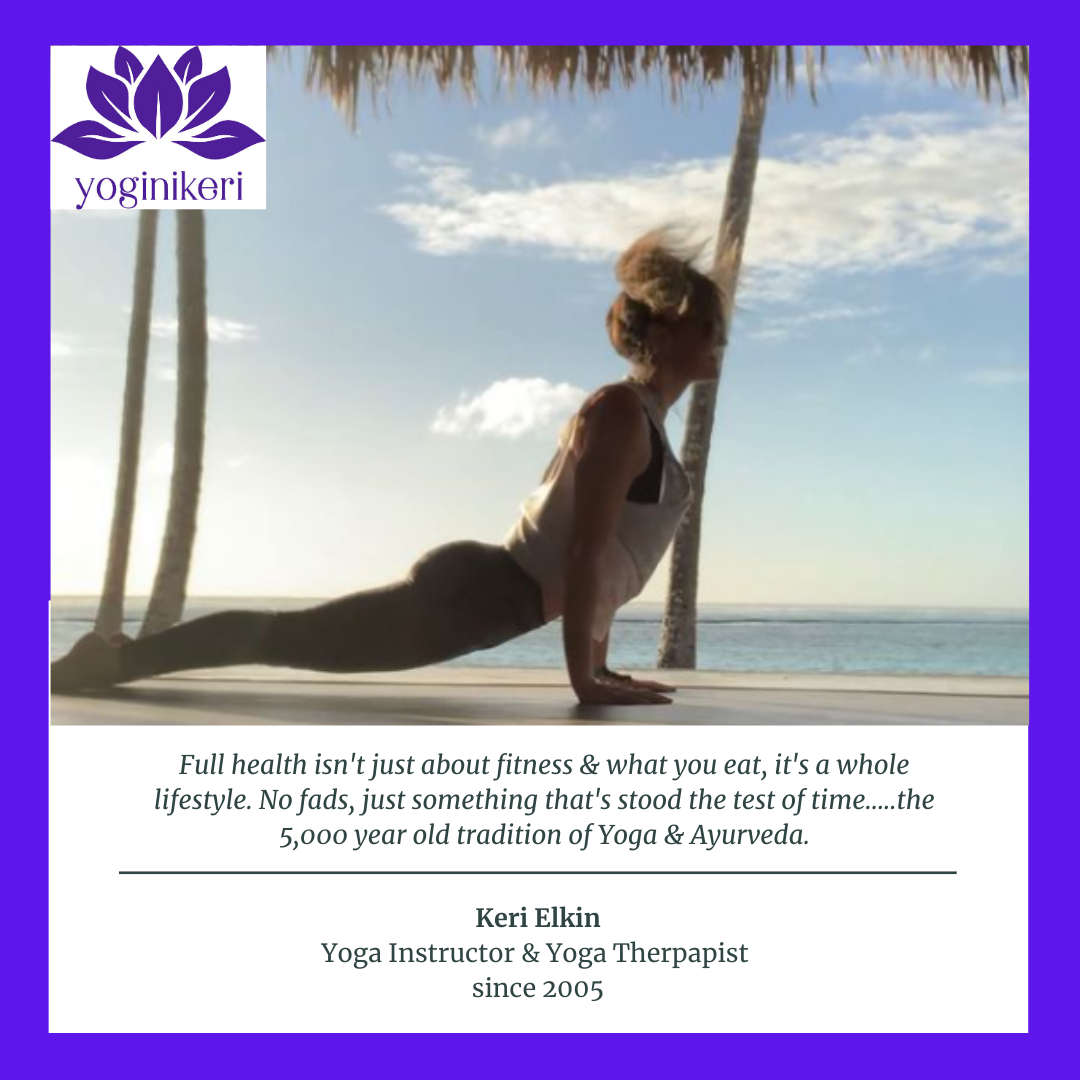
Positive thinking: https://www.verywellmind.com/increase-positivity-ratio-4108168
Affirmations: https://www.thinkup.me/stress-relief-affirmations/
Stress fighting foods: https://www.verywellmind.com/foods-that-help-fight-stress-4111678
Exercise and stress: https://www.verywellfit.com/exercise-and-stress-relief-1231199
Social self-care The importance of social life: https://outist.co/blog/why-do-we-need-social-interaction/
Effective communication: https://www.helpguide.org/articles/relationships-communication/effective-communication.htm Mental self-care https://projecthelping.org/self care-2/
Spiritual self-care https://www.verywellmind.com/how-spirituality-can-benefit-mental-and-physical-health-3144807 Emotional self-care https://www.habitsforwellbeing.com/
22-ways-practice-emotional-self care-letting-go/
Forgiveness: https://www.huffpost.com/entry/learning-forgiveness-_b_3728468
Gratitude: http://ei.yale.edu/what-is-gratitude/

-Infants (4-11 months) - 12-15 hours
-Toddlers (1-2 years) - 11-14 hours
-Preschoolers (3-5) - 10-13 hours
-School age children (6-13): - 9-11 hours
-Teenagers (14-17) - 8-10 hours
-Younger adults (18-25) - 7-9 hours
-Adults (26-64) - 7-9 hours
-Older adults (65+) - 7-8 hours
Let's look at 10 natural and effective ways to get the sleep you need.
- Diet: Dr. Axe, a naturopathic doctor, and nutritionist believes that diet is crucial when it comes to sleep deprivation. He argues that consuming sugars and carbohydrates before bed can increase the body’s temperature to burn those sugars off, which is disruptive to sleep. He advises limiting these carb-rich foods several hours before bed for optimal sleep.
Healthy fats, like avocado or sugar-free yogurt, are great choices for late-night eating because they are high in relaxation inducing nutrients, such as magnesium and potassium. There are also some great beverages that can provide these helpful nutrients!
Sleep Naturally Here are 4 nutritious and delicious drink recipes that can help you get the rest you need:
Banana Tea is rich in both magnesium and potassium:
https://mommypotamus.com/banana-tea-for-sleep/
Pink Moon Milk, or tart cherry juice, is a natural source of melatonin.
https://heartbeetkitchen.com/2017/recipes/pink-moon-milk-sleep-tonic/
Chamomile Lavender Latte includes powerful and natural relaxants.
https://helloglow.co/chamomile-lavender-latte/
Turmeric Golden Milk is great for inflammation and balancing blood sugar.
https://www.theawesomegreen.com/turmeric-golden-milk-for-a-better-sleep/
Foods to Avoid
While there are plenty of things that help induce sleep, it is also important to consider what to avoid when treating insomnia. When looking to make changes for better sleep, it is important that we assess what may affect our sleep quality and cause restlessness. Here is a list, from Medical Daily online, of some things to avoid before bed for the best chance at a good night’s rest:
~Spicy foods
~Greasy foods, such as fast food
~Meats and cheeses
~Alcohol
~Caffeine
~Nicotine
~Dark chocolate
~Sugars or carbohydrate - Routine: A routine is an essential element when considering a healthy sleep pattern. Setting and following a sleep schedule can help increase the likelihood of falling and staying asleep.
The National Sleep Organization recommends.....
~Setting a consistent bedtime and a wake-up time. If you are a night owl, the suggestion is to slowly subtract 15 minutes a night to your regular sleep time until you reach your bedtime goal.
~As for getting up, hands off that snooze button! It is important to rise at the same time each day without the fallback of the alarm. The idea is that you get used to the wake-up time, without interruption. - Exercise: The Natural Sleep Foundation lists exercise as a way to combat insomnia. They explain that “exercise triggers an increase in body temperature and the post-exercise drop in temperature may promote falling asleep.
Exercise may also reduce insomnia by decreasing arousal, anxiety, and depressive symptoms. Insomnia is commonly linked with elevated arousal, anxiety, and depression, and exercise has strong effects on reducing these symptoms in the general population.
Exercises related to better sleep include:
-Aerobic
-Strength training
-Yoga Try incorporating these activities well before bedtime for the best results. Learn more about Yoga for better sleep here. - Breathe: Dr. Axe, naturopath, and nutritionist, list stress as one of the leading causes of insomnia. In turn, by reducing stress, adequate sleep is possible. One way to reduce stress, says Dr. Axe, is being mindful of breath. “Slow, deep breathing actually helps the body override the sympathetic system, which controls our fight-or-flight response, and lets the parasympathetic system — which controls our ability to relax — take the wheel instead. When you practice deep breathing while in bed, you’re giving the body permission to quit being on high alert and, instead, to relax” (Dr. Axe).
- Mantras: Meditation is a great way to work on breath and to focus on the centering of the body, which also helps to relieve anxieties and stress. The Daily Meditation suggests trying some mantras in the evening to help fall asleep. A mantra is a phrase or sounds repeated over and over to soothe and relax the mind. Here are some that The Daily Meditation recommends:
-“I am calm and still.”
-“The world is sleeping, and all is well.”
-“I welcome sleep into my being.”
-“I am breathing deeply and calmly, becoming more and more relaxed with each breath.”
For the best results, repeat one of your choosing 20 times or until you begin to feel more relaxed. - Technology: “Our cell phones, tablets, computers, and other electronic gadgets have become such a huge part of our daily lives that it’s often hard to put them down—even at bedtime. Keeping your phone on your nightstand may not seem like a big deal, but technology affects your sleep in more ways than you realize. Whether you’re surfing the web, playing a video game, or using your phone as an alarm clock in the late evening, you’re probably keeping yourself from a restful night” (National Sleep Foundation, n.d.). National Sleep Foundation warns gadget users of the ill effects of late-night phone, computer and tablet use on sleep. The blue light from these gadgets suppresses natural occurring melatonin, a hormone responsible for regulating your sleep cycle. Gadgets also keep the brain alert, not something we want when trying to get to sleep.
The solution: Limit gadget use in bed or close to bedtime. - Sound Sleep: For some, noise is necessary for falling asleep, which is why many people turn to watching TV in bed. But a proper noise machine is a great alternative to the distraction of TV and is a more soothing way to lead to sleep. Many options include sleep-inducing sounds such as white noise, ocean waves, waterfalls, rainforests, and rivers.
Here is a sample of a noise machine at work provided by Relaxing White Noise: https://www.youtube.com/watch?v=gwXZX7XKWMs - Essential Oils: The North American Essential Oil and Aromatherapy Experts state on their website, “Essential oils can act by triggering the central nervous system and circulatory system to promote sleep in the body” (The North American Essential Oil and Aromatherapy Experts, n.d.).
They recommend a few like these below:
~Lavender Oi
~Cedarwood Oil
~Chamomile Oil
There are several ways to incorporate essential oils into your nighttime routine...
Here are some tips from The North American Essential Oil and Aromatherapy Experts on how to incorporate essential oils into your nighttime routine for better sleep:
Diffuser
Add 2-4 drops of essential oil of your choice into a diffuser approximately 30 minutes in your bedroom before you go to sleep.
In the Bath
Add 5-10 drops of the desired essential oil into warm running bath water before getting in.
Air Freshener Mix
1 cup of water and 4-5 drops of essential oil in a spray bottle. Mist around your bedroom before going to sleep.
Foot Massage
To use essential oils on feet for sleep add 2 drops of essential oil to 1 Tbsp. of carrier oil. Massage the mixture on the bottom of the feet in a circular motion until fully absorbed.
Direct Inhalation
A simple way to enjoy the sedative properties of essential oils is to inhale the aroma from the bottle directly. Hold the bottle 1-2 inches away from your nose and take several deep breaths. - Sleepy Teas:
Not only are teas a nice soothing drink, but some herbal teas are also used to combat insomnia.
Organic 4 Green Livings online has a great list of sleep-inducing teas for treating insomnia. You can see the listing here:
Here is their recipe suggestion for a Lavender tea:
“If you have dried lavender flowers you will need 1 1/2 tablespoons of it or 3 if the flowers are fresh and 2 cups of hot water. You can also add lemon or honey to improve the taste. To prepare the herbal tea, you should put the flowers in a teapot, add the herbs and then put the boiling water before leaving it to steep for ten minutes. - Temperature:
Because body temperature plays a role in the amount and quality of sleep one gets, room temperature should be considered a contributing factor. A room that is too hot will elevate the body’s temperature, causing the body to work to cool itself, and in turn, disrupts sleep. Natural Sleep Foundation claims that an optimal room temperature for the best sleep is around 65 degrees. Do you keep your room cool for sleeping?
- Virtual Yoga for Better Sleep Class - 3/6 @ 10am virtually
- Virtual Yoga for Better Sleep 3 week series (3/13, 20 & 27) - Includes 21 day Sleep Challenge
- Virtual Foam Rolling Class (3/21) - Includes 21 day Sleep Challenge
- Virtual Intro to Prenatal Yoga
- Virtual Chair Yoga (Fridays @ 12:30pm) at your home or desk


